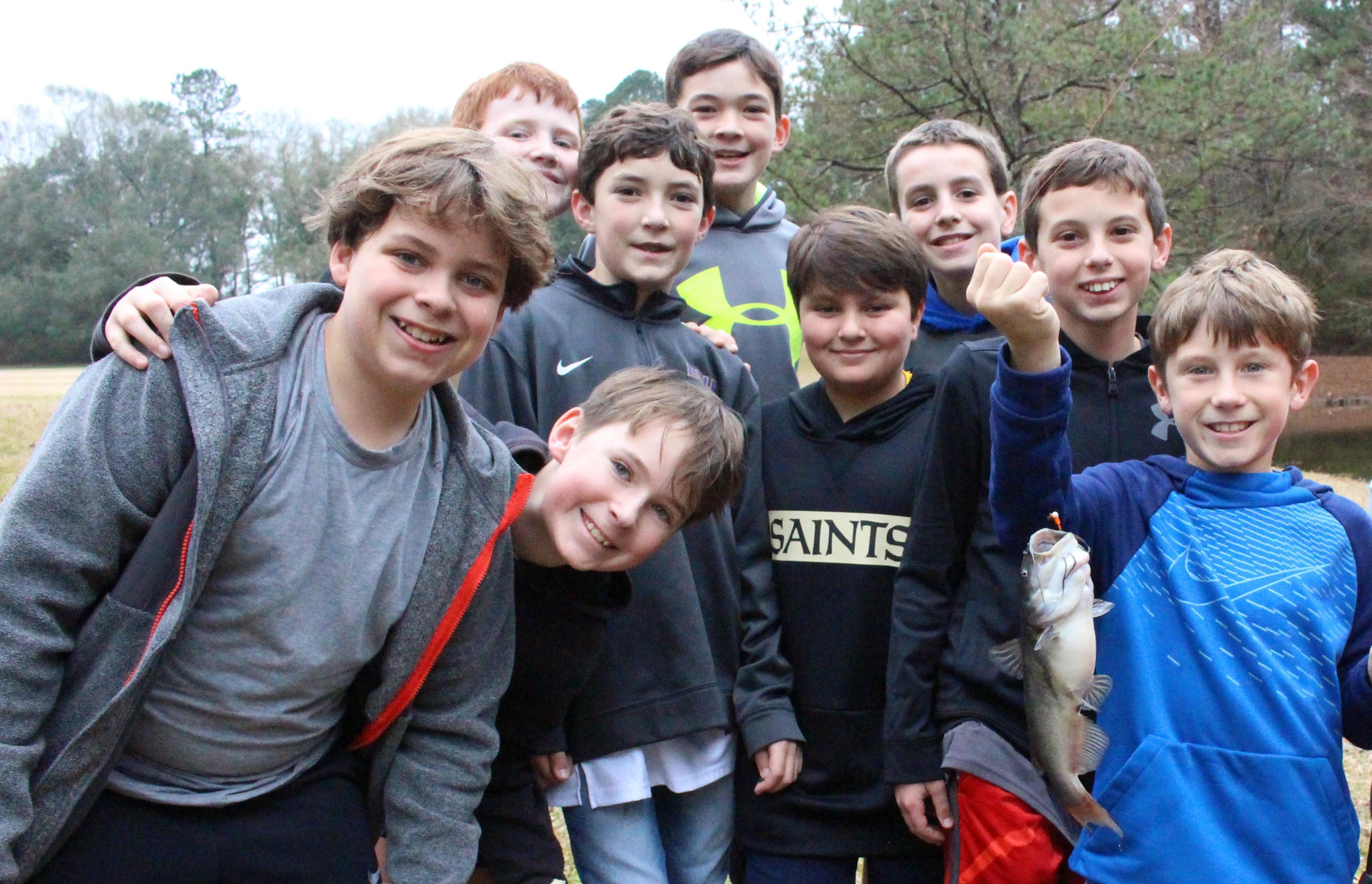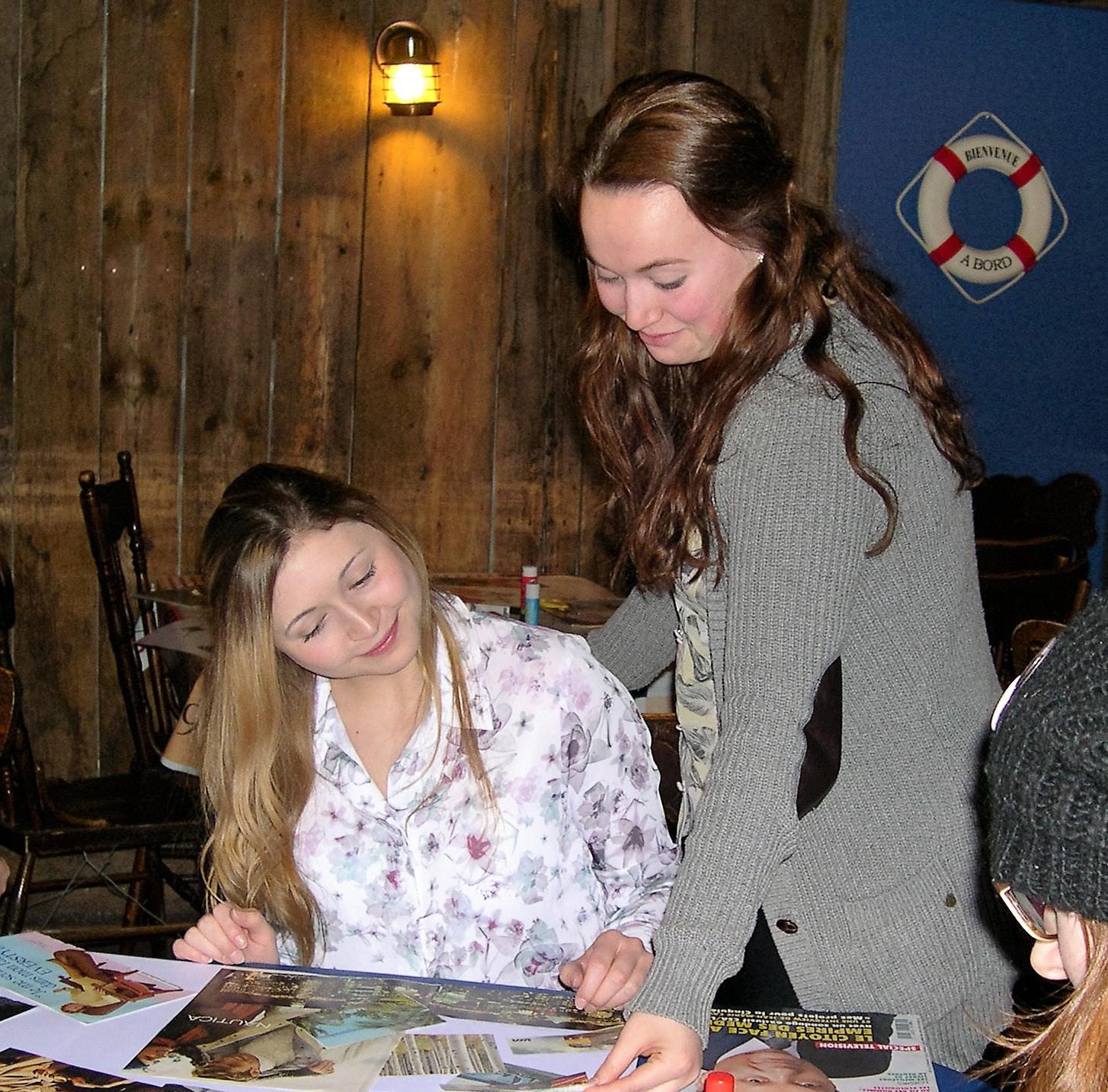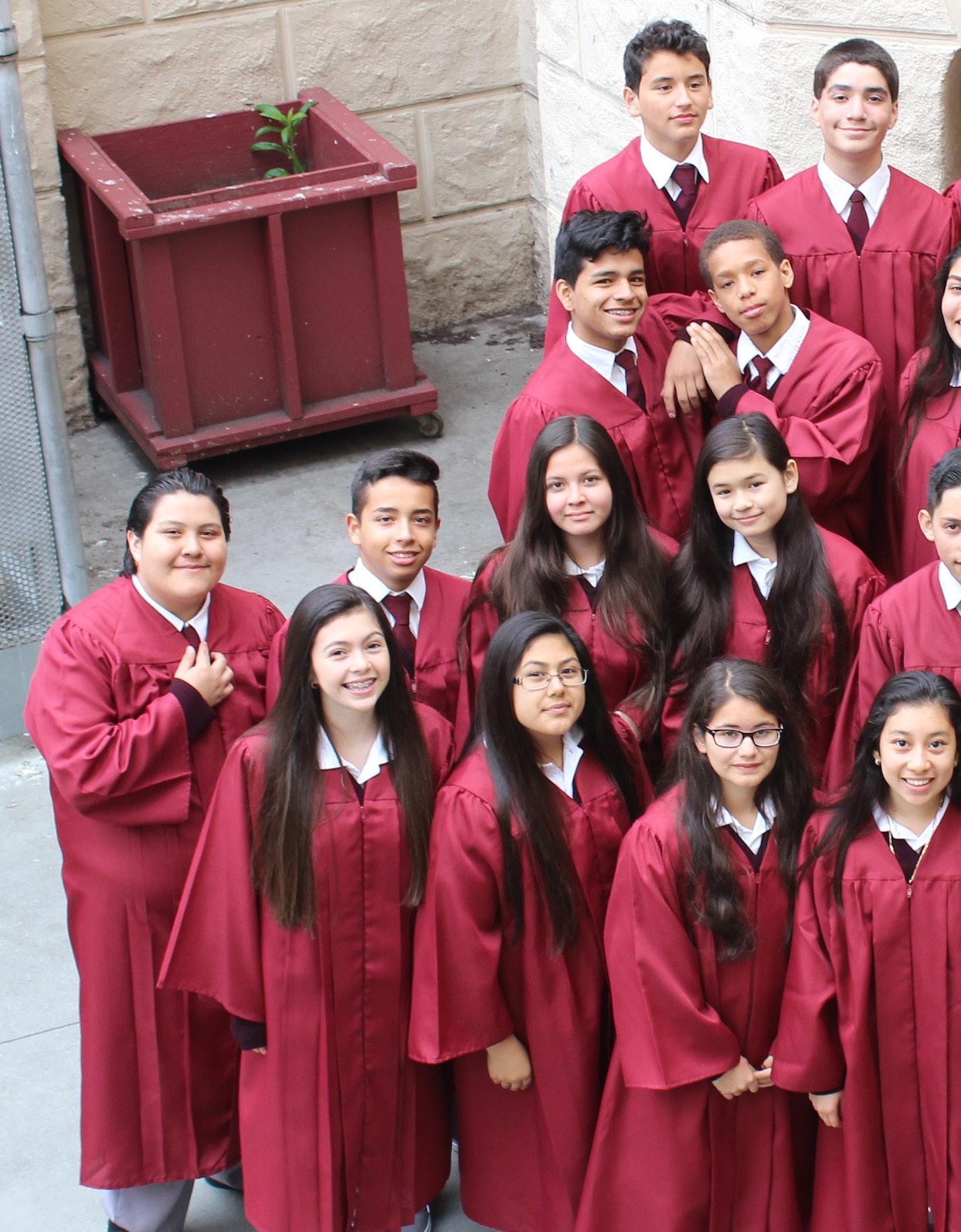
7 minute read
Forming Educators to Grow in Their Vocation
BY RYAN WALL
It’s a chilly Wednesday afternoon at La Salle Academy in Providence, Rhode Island, and Charles da Silva is wrapping up his religion classes for the day. As the final bell rings at 1:40 and students begin to pack up for their weekly early dismissal, da Silva prepares himself to join his fellow teachers in a La Salle Academy rite of passage: the Lasallian Formation Program.
Advertisement

The formation program has helped give Charles da Silva a deeper understanding of the Lasallian mission.
Courtesy La Salle Academy
The program is intended to acclimate new faculty and staff to the Lasallian mission while providing continuous education for their more experienced colleagues. All courses are taught by faculty and staff, creating a community-based approach to professional (and spiritual) development that lasts the duration of one’s tenure at the school.
“We’re learning how to be Lasallians. We’re getting introduced to this whole community, step by step. It’s been an excellent experience for me, and it’s been very helpful to me in my vocation as a teacher, and developing my vocation as a Lasallian,” da Silva explained.
Held once a quarter in place of a weekly faculty development meeting, participants take a mandatory core curriculum for their first seven years, and then have the option of exploring other programs and electives. Offerings include courses like “An Introduction to the Lasallian World,” “The Twelve Virtues of a Good Teacher,” and “Evangelization in a Multi-Religious Context.”
It has helped many teachers, like da Silva, find their calling and “develop internal harmony and a purposeful life,” in the words of Lasallian Reflection 4 (p. 17). Now in his sixth year as a teacher, da Silva feels it has given him a deeper understanding of his role, both inside the classroom and out.

Brother Frederick Mueller, FSC, second from left, helped introduce the formation initiative, which became a formal program in 2005 after nearly 20 years of similar programming at the school.
Courtesy La Salle Academy
“It starts simple: Who was this guy, John Baptist de La Salle? What was his charism? How did that translate into this bigger world? The idea that we’re part of something bigger is something we don’t think of, but it’s nice to know we’re part of a global network,” da Silva explained.
He isn’t alone in his sentiments—the formation program is something both new and veteran teachers look forward to. Courses are coordinated by the Lasallian Ministry Team, led by Brother Frederick Mueller, FSC, coordinator of Lasallian formation and Lasallian animator.
“I would characterize the formation program as having three key guidelines: taking a holistic approach to Lasallian spirituality; creating a culture of developmental progression as one explores their vocation; and encouraging all levels of accompaniment, from our first-year teachers to those who’ve been with the school for decades,” Brother Frederick said.
He would know—he helped found the program.
“The program is structured so it educates all parts of our community: family, students, staff, board members and alumni are all involved. With sessions being led by over 30 people, we’re able to help show that the Lasallian pedagogy is about more than just teaching—it’s a lifestyle,” explained Brother Frederick.
Such a lifestyle ties in closely with the teachings of Lasallian Reflection 4, which states that a crucial way to develop an inner energy is through communal enlightenment: by “experiencing fraternity and building it together. Being supportive of our students and our fellow travelers along the Lasallian way … Respecting their personal process and pace and helping them move forward. Building relationships that are full of compassion, kindness and dialogue … And helping others to discover their own vocation” (p. 17).
“We’re not trying to set up any expectations,” Brother Frederick noted. “Living a Lasallian life is a process, and we must respect the pace each member of the community has set for themself. We can’t throw information at anyone and expect them to grow. In this light, the formation process helps us to become better teachers, but more importantly better Lasallians.”
Michael Pereira is a math teacher at La Salle Academy. Having attended the school himself and watching his father work there, he grew up with an understanding of Lasallian values. Since coming back to teach at La Salle Academy, he’s developed a deeper appreciation of those values.

Michael Pereira has developed a deeper understanding of Lasallian values through his participation in the formation program.
Courtesy La Salle Academy
“The formation program does a great job educating those who haven’t had any sort of La Salle background, or any Catholic teaching experience, so that they can become acclimated into our community and really understand what it means to be Lasallian,” he said.
“It’s helped me grow mentally—I feel like I’m more informed about the Lasallian world,” Pereira added. “It’s helped me as a teacher. So many of Saint John Baptist de La Salle’s practices are still applicable today, from his teaching practices to his methodology to his willingness to help the individual. All of those things provide me with better tools to be a teacher in a 2019 classroom.”
Most importantly, though, Pereira noted that the formation program has helped him grow in his vocation.
“It’s helped me grow personally in so many ways. It’s really solidified what I’m doing, where I am, and that this is really the place I want to be,” he said.
Lasallian Reflection 4 acknowledges that vocation is dynamic, constantly growing and changing (p. 15). In that spirit, the formation program has grown over the years, launching formally in 2005 after nearly two decades of similar (but less structured) programming at the school. Brother Frederick helped build it up over time, to the point that the environment of “teaching as ministry” has become ingrained in the culture of La Salle Academy. Over the years, it has evolved to address relevant social issues, like human trafficking, immigration and at-risk students.
As a presenter within the program, Christine Estes, director of Campus Ministry, works hard to make offerings dynamic and timely.

Christine Estes, left, is a presenter in the La Salle Academy’s formation program.
Courtesy La Salle Academy
“There’s a lot of freedom about how we present material, and I like being able to come up with creative ways to discuss different topics. We’ve had traditional reading-based discussions, but we’re allowed a flexibility to go beyond that,” Estes explained. “For example, one time we watched a spoken word poem and had a powerful reflection on its meaning and how it fits into a Lasallian context. It ensures that the program stays current.”
One way the formation program does that is by inviting colleagues at La Salle Academy to present on topics they find interesting. On a regular basis colleagues who participate in the yearly Lasallian Social Justice Institute (LSJI), a formation program of the Office for Lasallian Education at Christian Brothers Conference, are able to reflect on what they have learned by hosting semester-long offerings.
“When people get back from these trainings, it gives them a chance to show what they learned and take ownership of a topic,” Estes said. “They’re passionate about it, and that creates a sense of excitement in the discussions. That’s how people learn.”
This “inner energy” guides us as we “develop internal harmony and a purposeful life,” Lasallian Reflection 4 teaches. Like many of her colleagues at La Salle Academy, Estes is confident that it has allowed her to grow her vocation, which in turn allows her students to develop a deeper connection with her.
“The formation program has caused me to take a step back and really reflect upon how teaching in the Lasallian sense of the word is really about opening yourself up to the presence of God in the community and in your students,” said Estes. “My students aren’t necessarily going to remember the specifics of what I teach them, but they’re always going to remember the kind of relationship I cultivate with them. Developing that awareness through the formation program makes our community special: we truly are ‘together by association.’”
Ryan Wall is a 2018 graduate of La Salle University in Philadelphia, Pennsylvania.






